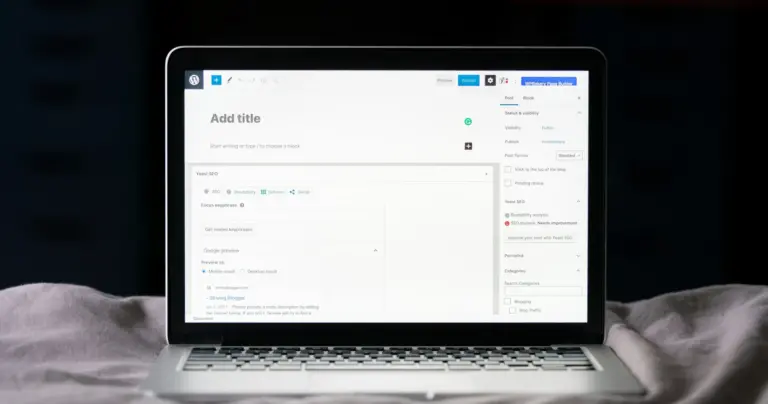What is Unlimited Web Hosting?
When searching the internet for great value web hosting packages, you may see hosting advertised as unlimited but what exactly does that mean?
The term unlimited web hosting usually refers to the amount of data usage you receive in the form of disk space and bandwidth, along with other services. Possible limits, and the effect of reaching these being reached are as follows:
Disk Space Limits.
Disk space, in the context of web hosting, is the combined size of all files and databases stored in your hosting account. To put this in real world terms, let’s say you have a hosting account that has a 100MB limit. You could use this to store 100 x 1MB files, or 50 x 2MB files, or 2 x 50MB files. The same principle applies to the disk of your computer.It can only store so much data before it becomes full.
The effect of reaching a disk space limit:
If you reach your account’s disk space limit, it’s highly likely that your website won’t load. There are some situations where your site may continue to load, but you definitely won’t be able to update your site, or take new orders if you’re operating an e-commerce site. You won’t be able to receive emails if your mailboxes are operated from within your hosting account. Anything that involves writing additional data to your hosting account will fail.
It’s avoiding situations such as the above that prompts a lot of people to use unlimited hosting.
Addressing a disk space limit problem:
To address disk space becoming exhausted you could:
- Delete data to free up disk space.
- Upgrade to obtain more disk space.
- You might consider upgrading to Unlimited hosting to prevent the same issue occurring in the future.
Bandwidth Limits.
Bandwidth is the amount of data transferred over a network. To provide some context, imagine you have a website that’s one page. This website is 0.5MB of HTML, and one picture, which is also 0.5MB. Add both together and you have 1MB as the total page size. 1MB of data is transferred upon each page visit. If 100 people visit this website 100MB of data is transferred, so 100MB of bandwidth is used. This is an oversimplification as caching and repeat visits aren’t taken in to account. It should provide you with an idea about how bandwidth is consumed.
The effect of reaching a bandwidth limit:
This varies between providers. Your website won’t usually load when a bandwidth limit is reached. Although email services do contribute to bandwidth, they’ll usually continue to function if a bandwidth limit is reached. This can vary between hosting providers so it’s worth checking if you’d like to know for sure.
Addressing a bandwidth limit problem:
To address bandwidth becoming exhausted you could:
- Wait until bandwidth counters reset (this is usually at the end of the month).
- Upgrade to obtain more bandwidth.
- You might consider upgrading to Unlimited hosting to prevent the same issue occurring in the future.
Inode Limits.
In many hosting packages, there’s also likely to be an inode limit. Inodes are files. An inode limit is a limit in the number of files you can store in a hosting account. You might initially think something like “isn’t that the same as disk space?”. Files can be different sizes, it becomes apparent that disk usage and number of files are two different things. If you store 2 x 50MB files, you’re using 2 inodes and 100MB of disk space. If you store 100 files of 1MB, you’re using 100 inodes, but sill using 100MB of disk space.
The effect of reaching an inode limit:
If you reach your account’s inode space limit, it’s highly likely that your website won’t load. There are some situations where your site may continue to load, but you won’t be able to update your site. It’s possible that you may be able to write to databases while an inode limit has been reached. If your emails are operated from within your hosting account, you won’t be able to receive emails. Anything that involves writing additional files to your hosting account will fail.
Addressing an inode limit problem:
To address inode count becoming exhausted you could:
- Delete files to free up inodes.
- Upgrade to obtain a greater inode count.
- You might consider upgrading to Unlimited hosting to prevent the same issue occurring in the future.
How Disk Space is Consumed.
To give you an idea of how disk space is used, let’s say you’re using IMAP for your emails (so that mailboxes and their content appears the same across multuple devices). This dictates the need to store emails server side. One email is one file (so one inode), but an email can vary considerably in size depending on factors such as if the email has attachments and how big these are. For example an email that says “would you like to go for a drink after work” will be a couple of KBs, but an email that just contains a question mark and has an attachment that’s a photo of a pub sign (taken on an iPhone), will be a couple of MBs (so roughly 1000 times bigger than the “would you like to go for a drink after work” email).
The ongoing receipt of emails, logging and updates being made to your website all cause disk space to be used, and the amount of files (or inodes) held in your account to increase.
How quickly disk space is used varies according to:
- The size of emails being received
- The number of events logged
- The number and type of updates being made to your site
How quickly inode count is used varies according to:
- The number of emails being received
- The amount of images you add to your site
- The number of plugin/theme/extensions you use, and how often these update
Choosing a hosting package with unlimited disk space means you can host much larger websites as you can host an unlimited number of files. Unlimited disk space is especially useful for ecommerce websites where there are a large number of high quality product images to display or there is a large catalogue of products.
Why Hosting Limits Can Cause Problems.
Not everyone appreciates how disk usage is consumed as outlined above, and it’s difficult to be able to predict what you’ll be sent in emails.
When it comes to the website it can be even trickier. There was a time when websites were mostly written in flat HTML. Back then, there was a relationship between the number of pages and the number of files, and the amount of disk usage. This was because each site page was one file, plus each picture would be an additional file, plus each CSS or JS file. Due to this there was a logical “more pages = more files = more inodes = more space” methodology.
Unfortunately not many websites are operated on a flat HTML basis any more. Most modern websites tend to use content management systems (CMS). These are effectively programs that are run in hosting accounts to manage a site and display it’s content. The entire program needs to be in place and running for any number of pages to be in place, be that one or 100. Page content is usually stored in a database when using a CMS which is effectively a singular file. Some CMS, such as WordPress will automatically create multiple copies of images upon upload. This can have a greater impact on disk space when using a CMS. CMS often have addons such as themes, extensions or plugins. Although these are usually fairly small in size, there can be a lot of associated files.
Understanding how using a CMS affects disk space and inode count can be harder for some people than others. It can also be difficult to predict how inode count and disk space usage increases over time. You’re more likely to use large amounts of disk space if your site has a lot of images. When using a CMS, you’re more likely to use a lot of inodes if your site has a lot of functionality. This is due to more plugins, or extensions being used. This is quite different from the “more pages = more files = more inodes = more space” methodology when using flat HTML.
Not everyone appreciates how disk usage is consumed based on how they choose to operate. It can be difficult to predict, or manage disk space usage when hosting a website. How easy it is to manage inode count or free up disk space varies considerably between individuals. Some people might have read the above and thought “that makes sense”, and they might well be able to use a cheaper hosting account, with limits, and manage disk space accordingly. Conversely someone that found the above harder to understand would also find it harder to manage disk space, so they’d be more suited to using an unlimited hosting package.
It can be a challenge knowing what kind of hosting limits you’ll need for your site and mailboxes to be usable. You might also be concerned about what problems will occur if you hit any of these limits, and what to do if a limit is reached. When limits are reached services generally stop working. In a practical context, reaching limits might result in a website being down, or emails not beign delivered. It’s avoiding these situaitons that makes Unlimited hosting an appealing option.
Choosing a hosting package with unlimited disk space means you can host much larger websites as you can host an unlimited number of files. Unlimited disk space is especially useful for ecommerce websites where there are a large number of high quality product images to display or there is a large catalogue of products. Unlimited hosting is also useful if you plan on using email as your main communication channel. If you know you’ll be sending and receiving emails with attachments, unlimited hosting is worth considering.
Choosing a hosting package with unlimited bandwidth is essential for websites that receive a high volumes of traffic. Unlimited bandwidth ensures the site is always available, even if volumes of traffic are high. When bandwidth is limited, there may be times where the site shows an unavailable message resulting in lost customers or lower Google rankings. At netnerd.com we don’t limit bandwidth for any of our hosting packages, even the very cheapest.
Other services often included in unlimited hosting packages are unlimited databases for setting up your websites, unlimited subdomains for setting up different sections of your website such as blogs, shops and client logins, and unlimited email accounts.
Unlimited hosting provides a peace of mind when it comes to service availibility, and a greater degree of flexibility when it comes to developing your site or operating new services.
Is the hosting really unlimited?
In the majority of cases, the hosting packages aren’t entirely unlimited; there are fair usage limits in place but these are normally set so high that most users will never exceed the limits. As the hosting packages use shared resources, one user using an unusually excessive amount of data can have a negative impact on the hosting of other users websites, so certain limitations are in place to protect everyone.
These limitations are in place to ensure uptime and service availbility. They prevent situations where one shared hosting customer could cause other customer’s websites and email service to fail. It’s preventing these services failing that dictate the need to have some limitation in place. Hosting providers also have to make sure that these limits are so high that services being operated by their customers are continuously available.
NetNerd offer a range of unlimited hosting packages including a variety of unlimited services, details of the acceptable use can be found at https://netnerd.com/acceptable-use-policy/. If you’re looking for great value unlimited hosting package, view our options and purchase online today.






